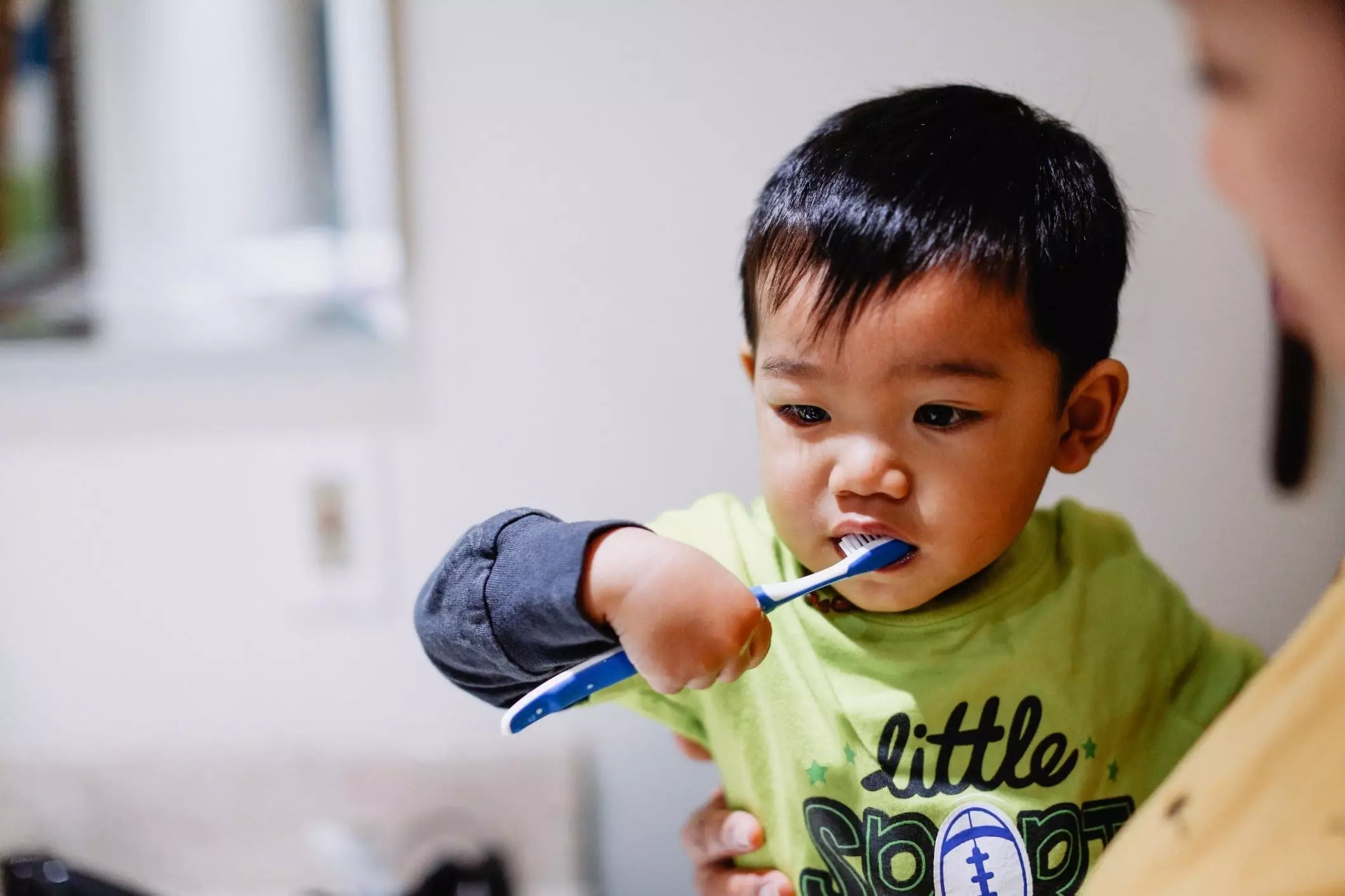Taking care of a toddler can often feel like navigating through a maze of demands, routines, and unpredictable behavior, especially when it comes time for dental hygiene. As parents, we know the importance of instilling good habits from an early age, but getting that little one to brush their teeth can sometimes feel like an uphill battle. Here, I present a fresh perspective on how to make this essential routine less of a chore and more of a delightful experience for both parent and child.
The foundation of any good habit begins with early intervention. Research by the American Academy of Pediatric Dentistry emphasizes the importance of introducing oral care even before your child’s first tooth erupts. Using a soft cloth or a baby toothbrush to clean their gums can lay the groundwork for a comprehensive dental routine. Once their first teeth appear, introducing a tiny smear of fluoride toothpaste is a logical next step. The key here is not just to start early, but also to maintain consistency. Establishing a dental routine that is executed at the same times daily creates familiarity and expectation.
Children thrive on routine, and the more they experience activities in a predictable setting, the more they come to accept them. Set specific times in the morning and evening dedicated strictly to dental hygiene, and avoid skipping days if at all possible—this sends the message that dental care is an optional activity.
Toddlers are known for their desire to assert independence, and one of the most effective ways to combat resistance during tooth brushing is to involve them in the decision-making process. This might mean letting them choose between a superhero or a princess toothbrush, or even selecting a toothpaste flavor they find appealing. By allowing children to make choices, you empower them and pique their interest. For instance, if your child enjoys strawberry flavor, they might associate brushing with something enjoyable rather than a chore.
Children learn significantly through imitation, making it essential for parents to lead by example. Brushing teeth together not only models proper technique but also transforms the act into a shared family experience. If you join them at the sink each evening, you’re likely to foster a sense of excitement surrounding the task. You might even make it a fun opportunity to talk about the significance of oral health in a light-hearted manner, making it feel less daunting for them.
While toddlers may exhibit excitement to brush their own teeth, their fine motor skills often don’t allow them to perform the task optimally. An effective compromise is allowing them to brush by themselves for a designated period—say, 30 seconds—before stepping in to ensure a thorough clean. This method strikes a balance between fostering independence and ensuring their teeth receive the proper care they need.
Music is a powerful tool when it comes to engaging toddlers and making mundane tasks more enjoyable. Creating a playful, catchy song to accompany tooth brushing can turn the experience into a fun activity. For example, a simple melody such as “Brushing Teeth” sung to a recognizable tune can add an element of joy to the routine. By incorporating songs into tooth brushing time, children develop an association of fun and routine—perfect for setting good long-term habits.
The psychology behind reward-based systems indicates that children respond well to positive reinforcement. Introducing a sticker chart system can serve as an effective motivator to encourage consistency in toothbrushing. Small treats, like reading their favorite story after finishing dental hygiene, can promote a sense of achievement and make them look forward to brushing. This approach shifts the focus from punitive measures—like scaring them with stories about cavities—to celebrating accomplishments.
As tempting as it might be to rush through flossing, it is important to recognize that it is not usually necessary until a child has developed contacts between their teeth. The American Academy of Pediatrics recommends monitoring their dental development and determining when flossing is appropriate, which generally occurs later on in their early years. This knowledge can avoid overwhelm and stress for both you and your child, allowing you to focus on setting a solid brushing routine.
Using fear-based tactics to compel children to brush their teeth can lead to a negative association with dental hygiene. Instead of threatening them about potential cavities or missing teeth, focus on promoting the positive outcomes of brushing—a bright smile, healthy gums, and the ability to eat candy guilt-free. Building a healthcare paradigm rooted in positivity sets the stage for lifelong healthy habits.
Encouraging toddlers to develop a love for brushing their teeth does not have to be a daunting task. Through early engagement, consistent routines, positive reinforcement, and an atmosphere of fun, parents can transform dental care into a joyous bonding experience. By focusing on the long-term benefits of dental hygiene, parents are not only helping their children today but also fostering healthy habits that will last a lifetime. Happy brushing!

